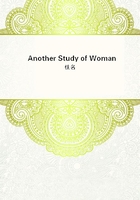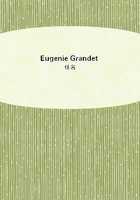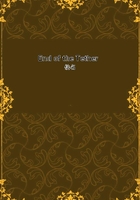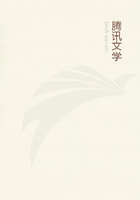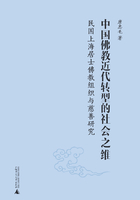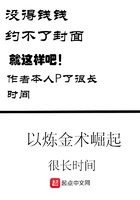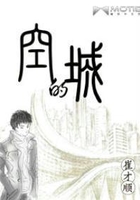v. 133. O Giocomo Of Sant' Andrea!] Jacopo da Sant' Andrea, a Paduan, who, having wasted his property in the most wanton acts of profusion, killed himself in despair. v. 144. In that City.] "I was an inhabitant of Florence, that city which changed her first patron Mars for St. John the Baptist, for which reason the vengeance of the deity thus slighted will never be appeased: and, if some remains of his status were not still visible on the bridge over the Arno, she would have been already leveled to the ground; and thus the citizens, who raised her again from the ashes to which Attila had reduced her, would have laboured in vain." See Paradise, Canto XVI. 44. The relic of antiquity to which the superstition of Florence attached so high an importance, was carried away by a flood, that destroyed the bridge on which it stood, in the year 1337, but without the ill effects that were apprehended from the loss of their fancied Palladium.
v. 152. I slung the fatal noose.] We are not informed who this suicide was.
v. 15. By Cato's foot.] See Lucan, Phars, l. 9.
v. 26. Dilated flakes of fire.] Compare Tasso. G. L. c. x. st. 61.
v. 28. As, in the torrid Indian clime.] Landino refers to Albertus Magnus for the circumstance here alluded to.
v. 53. In Mongibello.] More hot than Aetn' or flaming Mongibell. Spenser, F. Q. b. ii. c. ix. st. 29. See Virg. Aen. 1. viii. 416. and Berni. Orl. Inn 1. i. c. xvi. st. 21. It would be endless to refer to parallel passages in the Greek writers.
v. 64. This of the seven kings was one.] Compare Aesch. Seven Chiefs,425. Euripides, Phoen. 1179 and Statius. Theb. l. x. 821.
v. 76. Bulicame.] A warm medicinal spring near Viterbo, the waters of which, as Landino and Vellutelli affirm, passed by a place of ill fame. Venturi, with less probability, conjectures that Dante would imply, that it was the scene of much licentious merriment among those who frequented its baths.
v. 91. Under whose monarch.] Credo pudicitiam Saturno rege moratam In terris. Juv. Satir. vi.
v. 102. His head.] Daniel, ch. ii. 32, 33.
v. 133. Whither.] On the other side of Purgatory.
v. 10. Chiarentana.] A part of the Alps where the Brenta rises, which river is much swoln as soon as the snow begins to dissolve on the mountains.
v. 28. Brunetto.] "Ser Brunetto, a Florentine, the secretary or chancellor of the city, and Dante's preceptor, hath left us a work so little read, that both the subject of it and the language of it have been mistaken. It is in the French spoken in the reign of St. Louis,under the title of Tresor, and contains a species of philosophical course of lectures divided into theory and practice, or, as he expresses it, "un enchaussement des choses divines et humaines," &c. Sir R. Clayton's Translation of Tenhove's Memoirs of the Medici, vol. i. ch. ii. p. 104. The Tresor has never been printed in the original language. There is a fine manuscript of it in the British Museum, with an illuminated portrait of Brunetto in his study prefixed. Mus. Brit. MSS. 17, E. 1. Tesor. It is divided into four books, the first, on Cosmogony and Theology, the second, a translation of Aristotle's Ethics; the third on Virtues and Vices; the fourth, on Rhetoric. For an interesting memoir relating to this work, see Hist. de l'Acad. des Inscriptions, tom. vii. 296. His Tesoretto, one of the earliest productions of Italian poetry, is a curious work, not unlike the writings of Chaucer in style and numbers, though Bembo remarks, that his pupil, however largely he had stolen from it, could not have much enriched himself. As it is perhaps but little known, I will here add a slight sketch of it.
Brunetto describes himself as returning from an embassy to the King of Spain, on which he had been sent by the Guelph party from Florence. On the plain of Roncesvalles he meets a scholar on a bay mule, who tells him that the Guelfi are driven out of the city with great loss.
Struck with grief at these mournful tidings, and musing with his head bent downwards, he loses his road, and wanders into a wood. Here Nature, whose figure is described with sublimity, appears, and discloses to him the secrets of her operations. After this he wanders into a desert; but at length proceeds on his way, under the protection of a banner, with which Nature had furnished him, till on the third day he finds himself in a large pleasantchampaign, where are assembled many emperors, kings, and sages. It is the habitation of Virtue and her daughters, the four Cardinal Virtues. Here Brunetto sees also Courtesy, Bounty, Loyalty, and Prowess, and hears the instructions they give to a knight, which occupy about a fourth part of the poem. Leaving this territory, he passes over valleys, mountains, woods, forests, and bridges, till he arrives in a beautiful valley covered with flowers on all sides, and the richest in the world; but which was continually shifting its appearance from a round figure to a square, from obscurity to light, and from populousness to solitude. This is the region of Pleasure, or Cupid, who is accompanied by four ladies, Love, Hope, Fear, and Desire. In one part of it he meets with Ovid, and is instructed by him how to conquer the passion of love, and to escape from that place. After his escape he makes his confession to a friar, and then returns to the forest of visions: and ascending a mountain, he meets with Ptolemy, a venerable old man. Here the narrative breaks off. The poem ends, as it began, with an address to Rustico di Filippo, on whom he lavishes every sort of praise.
It has been observed, that Dante derived the idea of opening his poem by describing himself as lost in a wood, from the Tesoretto of his master. I know not whether it has been remarked, that the crime of usury is branded by both these poets as offensive to God and Nature: or that the sin for which Brunetto is condemned by his pupil, is mentioned in the Tesoretto with great horror. Dante's twenty-fifth sonnet is a jocose one, addressed to Brunetto. He died in 1295.
v. 62. Who in old times came down from Fesole.] See G. Villani Hist. l.

